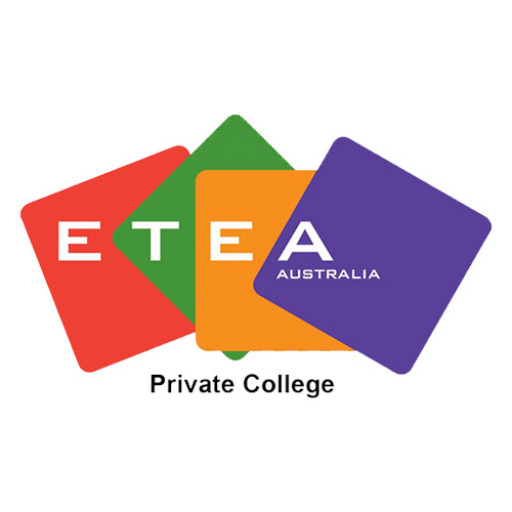Photos of university / #flindersuniversity
Disability Studies at Flinders University offers a comprehensive and interdisciplinary approach to understanding disability, its social, cultural, political, and historical contexts. The program aims to equip students with critical knowledge and practical skills necessary to contribute to policy development, advocacy, research, and service provision related to disability. Through a combination of theoretical frameworks and real-world applications, students explore diverse perspectives on disability, emphasizing social justice, human rights, and inclusion. The curriculum encompasses topics such as the social model of disability, disability legislation and policy, accessibility, community engagement, and the lived experiences of disabled individuals. Students have opportunities to engage in local and international disability initiatives, internships, and research projects, fostering a deeper understanding of the challenges and opportunities within the disability sector. The program is suitable for those interested in careers in social work, health services, policy analysis, advocacy, non-governmental organizations, and academic research. Faculty members deliver content that encourages critical thinking, ethical considerations, and innovative approaches to creating inclusive societies. Flinders University's Disability Studies program emphasizes collaborative learning and practical experience, preparing graduates to make meaningful contributions toward social change and improved quality of life for individuals with disabilities. By analyzing the intersectionality of disability with other social identities, students develop a nuanced perspective that promotes equity and diversity. Graduates of this program emerge with a solid foundation for influencing policy, advancing research, and supporting empowerment initiatives within disability communities. The program also offers pathways for further study, including Honours and postgraduate research opportunities, enabling students to specialize in areas of interest within disability and related fields. Overall, Disability Studies at Flinders University is committed to fostering a deeper understanding of disability issues and advocating for more inclusive, equitable societies globally.
Disability Studies at Flinders University offers a comprehensive and interdisciplinary program designed to explore the social, cultural, political, and economic aspects of disability. This program aims to deepen students' understanding of disability beyond medical models, emphasizing social justice, human rights, and inclusive practices. Through a combination of theoretical frameworks, empirical research, and practical applications, students will examine how disability is constructed, experienced, and addressed within various societal contexts. The curriculum covers key themes such as the history of disability, policy analysis, accessible design, and the role of advocacy in creating inclusive communities. Students will analyze current debates around disability rights, legislation, and technology, gaining critical insights into how societal attitudes influence policy and practice. The program encourages critical thinking and reflection on personal and societal responsibilities towards disability inclusion. It integrates opportunities for practical engagement, including internships and community projects, allowing students to apply their knowledge in real-world settings. Graduates will be equipped with the skills to work effectively in advocacy, policy development, education, social services, and research sectors related to disability. The program also emphasizes the importance of ethical considerations and culturally responsive approaches in all aspects of disability work. By fostering a multidisciplinary perspective, Disability Studies at Flinders University aims to prepare students to become informed advocates and change agents who can contribute to building a more equitable and inclusive society for people of all abilities.
Applicants must normally hold an approved bachelor degree or equivalent qualification. Applicants who support the former degree of Applied Science (Developmental Disabilities) from Flinders University are also contemplated. Selection is based on academic merit.
The financing of the Disability Studies program at Flinders University is structured to accommodate a diverse range of students, including domestic and international applicants, through various funding options. Domestic students typically have access to a range of financial assistance, such as government-funded scholarships, Commonwealth Supported Places (CSP), and student loans like the Higher Education Loan Program (HELP). CSPs are subsidized by the Australian government, significantly reducing the tuition fees for eligible students. These places are limited and awarded through a competitive selection process based on academic merit and other criteria. International students are responsible for paying full tuition fees, which are set annually and published on the university’s official website. Flinders University offers scholarships specifically tailored to international students, which can help offset the costs of tuition, living expenses, and relocation. These scholarships may be based on academic achievement, financial need, or specific criteria such as country of origin or field of study.
In addition to government and scholarship funding, students may qualify for financial support through external organizations and charitable foundations that provide grants and bursaries to students pursuing studies related to health, social services, and disability advocacy. Part-time work opportunities on campus are also available to eligible students, allowing them to supplement their income during their studies.
Furthermore, students enrolled in the Disability Studies program are encouraged to explore placement opportunities that may include stipends or financial support, depending on the nature of the placement or partnership arrangements. Flinders University provides comprehensive advice and support services to assist students in navigating funding opportunities, applying for scholarships, and managing their finances throughout their academic journey.
Overall, the financing of the Disability Studies program is designed to ensure access and affordability, emphasizing support for both domestic and international students while promoting equitable participation in higher education.
Disability Studies at Flinders University offers a comprehensive exploration of the social, political, and cultural aspects of disability. This program is designed to equip students with an in-depth understanding of disability issues through a multidisciplinary approach, integrating perspectives from sociology, human rights, public health, and education. Students will examine the history of disability policy, advocacy, and the evolving societal perceptions of disability. The curriculum emphasizes critical analysis of how societal structures, policies, and attitudes impact individuals with disabilities, aiming to foster a more inclusive and equitable society.
The program is suitable for students interested in careers in advocacy, policy development, community work, education, research, or health. It provides both theoretical foundations and practical skills, including research methods, policy analysis, and effective communication strategies. Students may have opportunities to engage in community projects, internships, and partnerships with organizations working with or advocating for people with disabilities.
Flinders University's Disability Studies program emphasizes diversity, inclusion, and social justice, preparing graduates to challenge discrimination and promote accessibility in various sectors. The program may be offered as a Bachelor of Arts or similar undergraduate degree, often with options for combined studies or specializations. It is designed to foster critical thinking, empathy, and informed advocacy, enabling graduates to contribute meaningfully to policy development, social programs, and community initiatives that aim to improve quality of life for people with disabilities.
This program also explores issues related to disability in different contexts, including rural and Indigenous communities, harnessing an understanding of intersectionality and cultural diversity. Students can expect to develop a nuanced understanding of contemporary disability rights movements and international conventions, such as the UN Convention on the Rights of Persons with Disabilities. By the end of their studies, graduates will be well-equipped to pursue roles in research, policy, service provision, education, or advocacy that support human rights and social justice for disabled individuals.
Overall, Flinders University’s Disability Studies program emphasizes critical engagement, innovative approaches, and real-world applications, ensuring graduates are prepared to contribute to positive change at local, national, and international levels.









